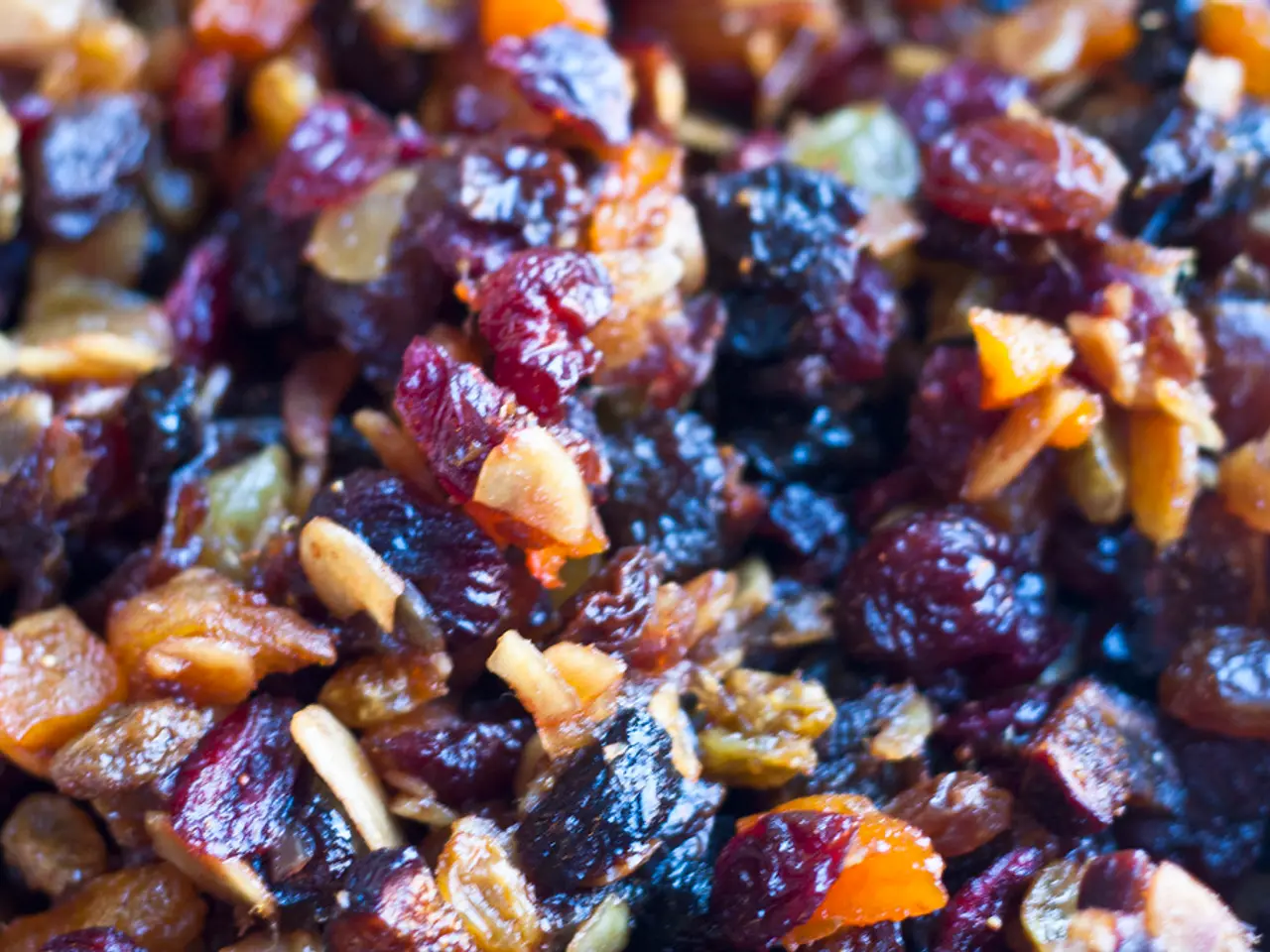Nutritious Solid Food Options for Infants in Nigeria
Weaning is an important milestone in a Nigerian baby's life, and it requires patience, persistence, and a supportive environment. This article aims to guide Nigerian parents on selecting the best weaning foods for their babies, offering insights into traditional and modern weaning options.
The Importance of Weaning
To successfully wean a Nigerian baby, it is crucial to be patient and persistent, involve family members and promote a supportive environment, encourage self-feeding and independent eating skills, seek professional guidance when needed, and monitor and celebrate baby's progress.
Making Homemade Baby Food
A step-by-step guide for making homemade baby food includes introducing single-ingredient foods, introducing one food at a time, proper cooking and preparation techniques, gradually combining flavors and textures, avoiding additives, preservatives, excessive salt or sugar, and safely introducing allergenic foods.
Traditional Nigerian Weaning Practices
Traditional Nigerian practices related to weaning include the introduction of PAP, Moi-moi, yam, plantain, fruits, cultural soups, and homemade baby food. These practices offer nutritional diversity, cultural preservation, cost-effectiveness, and health benefits.
Nutritious Weaning Food Options
Nigerian cuisine offers diverse options rich in nutrients like iron, calcium, vitamins, and healthy fats necessary for a baby's growth. Key nutrients necessary during weaning include protein, iron, calcium, zinc, vitamin A, vitamin C, vitamin D, and omega-3 fatty acids for growth and development.
Healthy weaning foods are essential for Nigerian babies' growth and development, providing essential nutrients for robust physical and mental growth. Nutritious weaning meal ideas include pureed vegetables and fruits, Nigerian grain-based porridges like pap, ogi, and koko, finger foods and soft food options, and Nigerian soups and stews adapted for babies.
Common Pitfalls to Avoid
To ensure proper nutrition, it is crucial to be aware of the recommended daily intake of nutrients for Nigerian babies during weaning. Parents should avoid common pitfalls during weaning, such as overemphasizing on milk and neglecting solid foods, introducing high-sugar and processed foods too early, skipping essential food groups for a balanced diet, and ignoring baby's cues for hunger and fullness.
Finger Foods and Soft Food Options
Finger foods and soft food options for weaning include well-cooked pasta, mashed beans, and small pieces of steamed vegetables. These foods are easy to digest and help babies develop their chewing skills.
The Best Weaning Food Options
The best traditional and modern weaning food options for Nigerian babies combine familiar local ingredients with age-appropriate preparation methods to ensure balanced nutrition. Traditional weaning foods often include soft, mashed staples like pap (fermented corn porridge), amala (yam flour), and pounded yam mixed with nutrient-rich additions such as crayfish, Titus fish, deboned dried fish, and locust beans (dawadawa) which provide protein, omega-3 fatty acids, and essential micronutrients.
Modern approaches emphasize baby-led weaning and gradual introduction of diverse, easy-to-digest foods, starting with smooth, mashed textures and increasing to more solid forms as the baby grows.
Together, these practices support healthy growth by providing sufficient energy, protein, vitamins, and minerals tailored to Nigerian weaning traditions combined with modern nutritional insights.
Additional Resources
For further guidance, parents are encouraged to consult with a pediatrician or a nutrition expert to ensure that their baby's needs are met during the weaning process. E-books for sale include "Parenting in the Digital Age" and "Raising Financially Smart Nigerian Kids: 425 Lessons on Money & Entrepreneurship."
[1] Baby-led weaning: an evidence-based approach to complementary feeding [2] Complementary feeding practices in Nigeria: a review [3] Feeding practices and nutritional status of Nigerian infants and young children [4] Nutritional adequacy of traditional Nigerian complementary foods for infants and young children [5] Traditional Nigerian complementary feeding practices: a review
- To ensure baby's successful weaning, promote a supportive environment, involving family members, and encourage self-feeding and independent eating skills.
- Making homemade baby food requires introducing single-ingredient foods, proper cooking and preparation techniques, and avoiding additives, preservatives, excessive salt or sugar.
- Traditional Nigerian weaning practices offer nutritional diversity, cultural preservation, and health benefits with options like PAP, Moi-moi, yam, and cultural soups.
- Nutritious weaning foods should provide essential nutrients for growth and development, such as protein, iron, calcium, zinc, vitamin A, vitamin C, vitamin D, and omega-3 fatty acids.
- Common pitfalls to avoid during weaning include overemphasizing milk, neglecting solid foods, introducing high-sugar and processed foods, and ignoring baby's cues for hunger and fullness.
- Finger foods and soft food options, such as well-cooked pasta and mashed beans, help babies develop chewing skills while being easy to digest.
- parents should consult with a pediatrician or nutrition expert for additional guidance and consider resources like e-books on parenting, nutrition, or money management.




